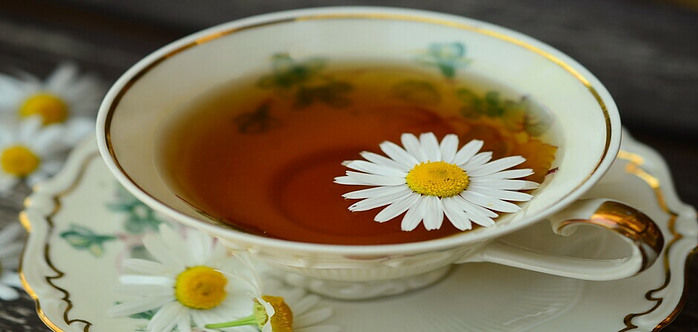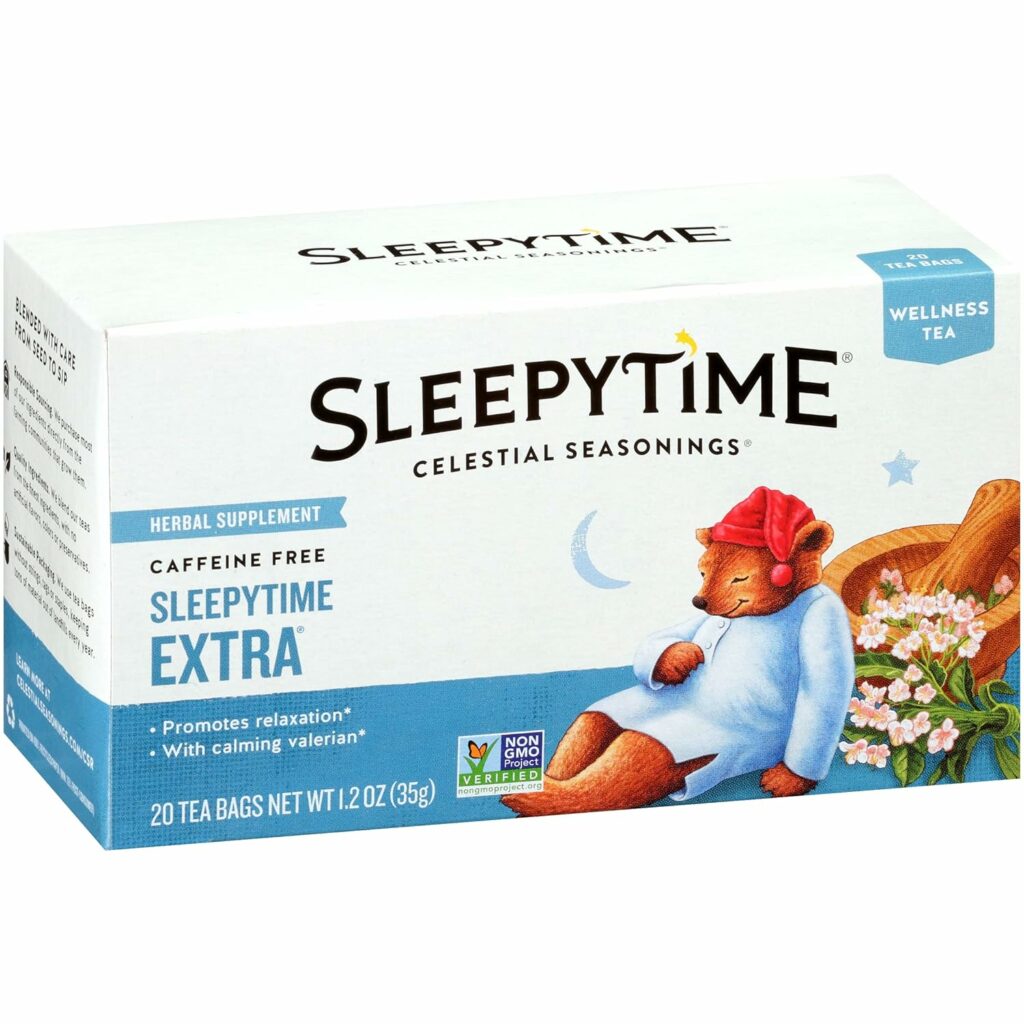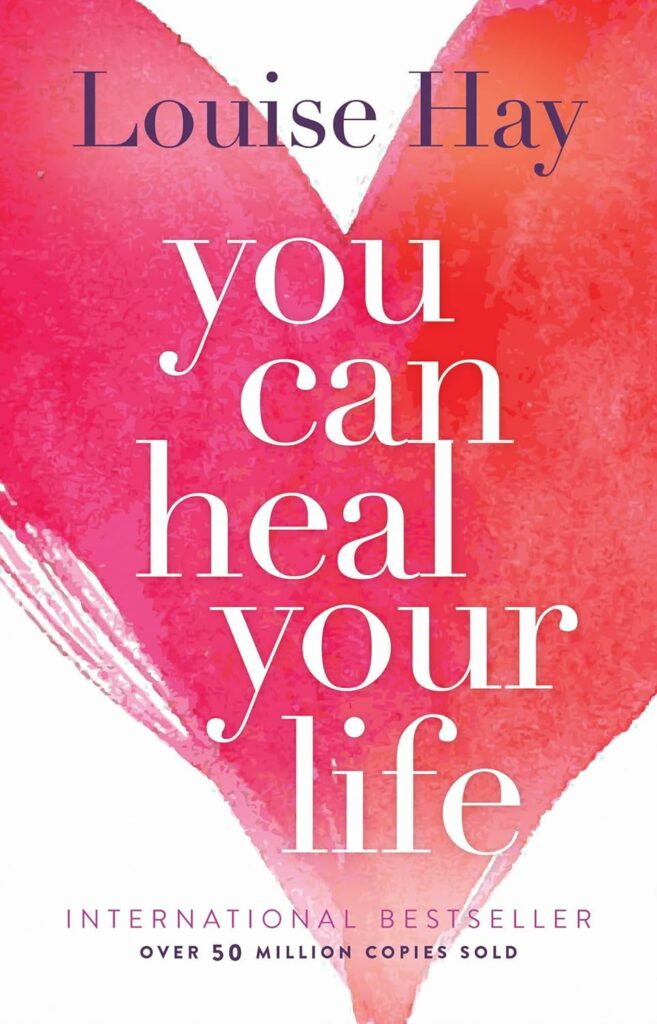Understanding Anxiety and Depression: The Natural Perspective

The rising prevalence of anxiety and depression in modern society
In the tapestry of modern life, a growing concern has emerged, casting a shadow over the well-being of individuals: the escalating prevalence of anxiety and depression. This trend has become a pressing issue affecting people across diverse demographics and backgrounds. The complexities of modern society, characterized by rapid technological advancements, relentless competition and an ever-increasing pace of life, have contributed to a fertile ground for these mental health challenges to flourish.
The relentless bombardment of information, the constant pressure to succeed and the pervasive sense of isolation have created an environment where anxiety and depression can easily take root. Furthermore, societal expectations, cultural norms and the stigma associated with mental health issues often prevent individuals from seeking the support and treatment they need, exacerbating the problem and perpetuating a cycle of suffering.
The best natural remedies for anxiety and depression is the topic explored in this blog post.

What causes anxiety and depression?
Anxiety and depression are two prevalent mental health conditions that affect millions of people worldwide. While the exact causes of these conditions are not fully understood, research has identified several contributing factors.
Genetic predisposition, brain chemistry and life experiences all play a role in the development of anxiety and depression. Genetic factors can increase an individual’s susceptibility to these conditions but they are not the sole determinant.
Brain chemistry, particularly the levels of neurotransmitters such as serotonin and dopamine, is also implicated in the development of anxiety and depression. Imbalances in these neurotransmitters can lead to changes in mood, behavior and cognitive functioning.
Life experiences, including traumatic events, chronic stress and adverse childhood experiences can also contribute to distorted thought patterns and to the onset of anxiety and depression. These experiences can disrupt brain development and function and lead to a distorted, damaged or inadequate self-image making individuals more vulnerable to these emotional imbalances.
In addition, certain medical conditions and substance use can also trigger or exacerbate anxiety and depression.
Depression, in simple terms, is a profound feeling of sadness or hopelessness that, generally speaking, flow from past experiences. Anxiety, on the other hand, is the pattern of thought that worries excessively about what might happen tomorrow, next week or next month. One approach that can help alleviate the symptoms that flow from anxiety or depression is a focus on the present moment. We will say more about that in the following discussion.
Exploration of natural remedies: herbs, diet and lifestyle choices

Anxiety and depression are prevalent mental health conditions that can significantly impact an individual’s well-being. While conventional treatments often involve medication and therapy, there is growing interest in exploring natural remedies as complementary or alternative approaches.
Herbs like chamomile, lavender and valerian root have shown promise in reducing symptoms of anxiety and improving sleep. Certain dietary modifications, such as increasing intake of fruits, vegetables and omega-3 fatty acids have also been associated with improved mental health.

Lifestyle choices such as regular exercise, adequate sleep and stress management techniques like meditation, yoga and a focus on the present moment have been found to be beneficial in alleviating anxiety and depression. It is important to note that these natural remedies may not be suitable for everyone and should be discussed with a healthcare professional before incorporating them into a treatment plan.
Evidence-based support for natural approaches to mental health
While conventional treatments often involve medication and therapy, there is growing interest in exploring natural approaches to mental health. Research has provided evidence supporting the efficacy of certain natural interventions in managing anxiety and depression.
For example, regular physical activity has been shown to reduce symptoms of both conditions, with aerobic exercise being particularly beneficial. In addition, mindfulness-based interventions such as meditation, yoga and a focus on the present moment, have demonstrated promise in alleviating anxiety and depression symptoms.
Furthermore, dietary modifications, including consuming a balanced diet rich in fruits, vegetables and whole grains, have been linked to improved mental health outcomes. Certain supplements, such as omega-3 fatty acids and probiotics have also shown potential in reducing anxiety and depression symptoms. Recently, I did some research on probiotics and found, much to my surprise, that probiotics do, in fact, have an impact on mental and emotional health. If you’d like to learn more, here’s the link to the post that was inspired by that research: see January 5, 2024 post on probiotics Click Here

While these natural approaches may not be a substitute for conventional treatments, they can serve as complementary strategies to support mental health and overall well-being. It is important to consult with a healthcare professional before incorporating any natural interventions into your routine, especially if you are taking medications or have underlying health conditions.
A Focus on the present moment
Mindfulness-based interventions have gained attention as complementary or alternative approaches. Mindfulness, the practice of intentionally directing attention to the present moment without judgment, has been shown to reduce symptoms of anxiety and depression.
By focusing on the present, individuals can become less preoccupied with past regrets or future worries which can contribute to these conditions. Mindfulness techniques, such as meditation, deep breathing and yoga, can help individuals develop a greater awareness of their thoughts, feelings and bodily sensations, allowing them to respond to stressors in a more balanced and adaptive manner.
By cultivating a present-moment focus, individuals can break free from the cycle of distorted, negative thoughts and emotions that often perpetuate anxiety and depression which leads, naturally, to improved mental health outcomes.
A focus on the present moment is a powerful technique that can help one stay grounded and avoid the distractions that flow from distorted thought patterns. You might find Echart Tolle’s incredible book “The Power of Now” interesting and very helpful.
Social interaction
Social interaction can play a crucial role in managing anxiety and depression. It provides individuals with a sense of belonging, purpose and validation. Engaging in social activities can help reduce feelings of isolation, loneliness and negative self-talk.
Interacting with others can also provide emotional support, encouragement and a sense of community. Additionally, social interaction can help individuals develop coping mechanisms, learn new perspectives and gain a sense of accomplishment, all of which contribute to improved mental well-being.

Integrating traditional wisdom with contemporary science
While contemporary science has made significant strides in developing effective treatments, traditional wisdom and practices from various cultures can offer complementary insights and approaches. Integrating traditional healing methods such as mindfulness, meditation, yoga and herbal remedies with evidence-based therapies can provide a holistic and personalized approach to managing anxiety and depression. This integrative approach acknowledges the interconnectedness of mind, body and spirit, promoting overall well-being and resilience.
“6. Do not be anxious about anything, but in every situation, by prayer and petition, with thanksgiving, present your requests to God. 7. And the peace of God, which transcends all understanding, will guard your hearts and your minds in Christ Jesus.” Philippians 4:6-7
8 Finally, brethren, whatsoever things are true, whatsoever things are honest, whatsoever things are just, whatsoever things are pure, whatsoever things are lovely, whatsoever things are of good report; if there be any virtue, and if there be any praise, think on these things. Philippians 4:8

25 Therefore I say unto you, Take no thought for your life, what ye shall eat, or what ye shall drink; nor yet for your body, what ye shall put on. Is not the life more than meat, and the body than raiment? 26 Behold the fowls of the air: for they sow not, neither do they reap, nor gather into barns; yet your heavenly Father feedeth them. Are ye not much better than they? 27 Which of you by taking thought can add one cubit unto his stature? 28 And why take ye thought for raiment? Consider the lilies of the field, how they grow; they toil not, neither do they spin: 29 And yet I say unto you, That even Solomon in all his glory was not arrayed like one of these. 30 Wherefore, if God so clothe the grass of the field, which to day is, and to morrow is cast into the oven, shall he not much more clothe you, O ye of little faith? 31 Therefore take no thought, saying, What shall we eat? or, What shall we drink? or, Wherewithal shall we be clothed? 32 For after all these things do the Gentiles seek: for your heavenly Father knoweth that ye have need of all these things. 33 But seek ye first the kingdom of God, and his righteousness; and all these things shall be added unto you. 34 Take therefore no thought for the morrow: for the morrow shall take thought for the things of itself. Sufficient unto the day is the evil thereof.” Matthew 6:25-34
See post dated January 17, 2024 “Biblical Teaching on Control of One’s Thought Patterns” Click Here
.

Mastering Your Mind: The Power of Controlling Thought Patterns
The connection between thought patterns and emotional well-being
While anxiety and depression can be caused by various factors including genetics, life experiences and brain chemistry, there is a strong connection between thought patterns and the development and persistence of anxiety and depression. Negative thought patterns, such as catastrophizing, rumination and self-criticism can contribute to the development and maintenance of these conditions.
For example, individuals who tend to catastrophize or magnify the negative aspects of situations may experience heightened anxiety in response to stressors. Similarly, those who engage in rumination, repeatedly dwelling on negative thoughts and emotions, may find it difficult to break free from depressive symptoms.
Conversely, positive thought patterns such as optimism, gratitude and self-compassion can promote resilience and protect against the development of anxiety and depression. By challenging negative thought patterns and cultivating more positive ones, individuals can improve their emotional well-being and reduce their risk of developing these mental health conditions. See post on Gratitude Click Here

Techniques for thought control: mindfulness, meditation, and cognitive restructuring
Various techniques can be employed to manage and alleviate these conditions, including mindfulness, meditation and cognitive restructuring. Mindfulness involves focusing on the present moment and accepting thoughts and feelings without judgment. Meditation, a practice that cultivates mindfulness, can help individuals become more aware of their thoughts and emotions, allowing them to respond to them in a more balanced and constructive manner.
Cognitive restructuring, on the other hand, involves identifying and challenging negative thought patterns and replacing them with more positive and realistic ones. By engaging in these techniques, individuals can learn to manage their thoughts and emotions more effectively, leading to a reduction in symptoms of anxiety and depression and an improvement in overall mental well-being.
This approach has been successfully employed by Dr. Gary Emery Ph.D and his colleagues at the University of Pennsylvania. He has referred to the approach as ‘cognitive therapy’. The approach emphasizes correcting faulty beliefs.
“To get the most out of cognitive therapy, you need to grasp at a basic level two principles. The first is that you create your psychological reality by your thinking. The second is that your state of mind is directly related to your mood.” *
Dr. Emery points to the notion that emotional problems flow from faulty thinking. He goes on to say that this is not new! “Early Greek philosophers argued that it isn’t situations that upset people but their interpretations of situations. Many writers have been saying essentially the same ever since.” **
“If you’re depressed, you believe these fictitious negative ideas, and will go on believing them, unless you actively and strongly challenge them. You need to learn how to control these thoughts head on. You can teach yourself to do this.” ***
This book helped me in 1994 when I was diagnosed as clinically depressed and it can help you too! I sought professional help back then as I realized I was in deep trouble. A kindly psychologist gave me his copy of the book and it helped! The link can be found at the bottom of this post but please note that there are a host of books available that explore the cognitive behavioral Therapy approach (CBT) to overcoming depression.
However, the key in successful self-help, as with anything else in life, is to apply the principles learned. This can be difficult as depression can rob one of the motivation necessary to start any new project. The other side of the coin is that depression is a very uncomfortable black hole. For me, I very much wanted to escape from that seemingly bottomless pit so I made the effort.
If you wrestle with depression, resort to self-help is a good first step and the good news is that you can defeat depression too just as I did! I can also say that the lessons learned have helped me stay on the right track over the thirty years since I read that book and incorporated the principles into my own life. You will see a link to the book at the bottom of the page. If you click on the image you can purchase a copy from Amazon. I highly recommend it.

Real-life applications: Overcoming negative thoughts with positive practices | Affirmations
While there are various treatment options available, incorporating positive practices into daily life can be a valuable complementary approach to manage these conditions. Engaging in regular physical activity, practicing mindfulness and meditation techniques, maintaining a balanced diet and getting adequate sleep can contribute to reducing symptoms of anxiety and depression.
In addition, self-help books, surrounding oneself with supportive individuals, pursuing enjoyable activities and seeking professional help when needed can further aid in overcoming negative thoughts and promoting emotional well-being. By adopting these positive practices, individuals can take proactive steps towards managing their mental health and improving their overall quality of life.
Affirmations
Positive affirmations, statements that challenge negative thoughts and replace them with positive ones, have gained attention as a potential tool for combating anxiety and depression.
The underlying principle is that our thoughts and beliefs influence our emotions and behaviors. By consciously repeating positive affirmations, individuals can aim to reframe their negative thought patterns, boost their self-esteem and cultivate a more optimistic outlook.
Research suggests that positive affirmations may have a significant, beneficial impact on mental well-being. Studies have shown that engaging in positive self-talk can lead to reduced anxiety, improved mood and increased resilience to stress. In addition, positive affirmations have been found to activate brain regions associated with reward and motivation, potentially contributing to a sense of empowerment and self-efficacy.
While positive affirmations alone may not be sufficient to address severe mental health conditions, they can serve as a complementary strategy alongside professional therapy and other evidence-based treatments. Incorporating positive affirmations into daily routines, such as repeating them in front of a mirror or writing them down can help individuals focus on their strengths, cultivate self-compassion and promote a more positive self-image.
The late, and very great, Louise Hay was a monumental figure in this area. “I can do it” is one of the affirmations I personally employ and it has been profoundly helpful in my own life. “Louise Hay writes to your soul—where all healing begins. I love this book . . . and I love Louise Hay.” — Dr. Wayne W. Dyer, author of 10 Secrets for Success and Inner Peace and The Power of Intention.
Gratitude
Although, at first glance, this may seem counter-intuitive. How can one feel gratitude when, at the same time, feelings of sadness, hopelessness and overwhelm are dominating one’s thought patterns. However, when one realizes that you don’t have to look too far to find someone whose lot in life is worse than yours, you can then realize that much of what we do have to be grateful for in life is often overlooked and taken for granted. See January 11, 2024 post on Gratitude Click Here.
Importance of professional guidance in thought pattern management

Anxiety and depression are often characterized by persistent negative thoughts, feelings of hopelessness and a distorted perception of reality. While it is natural to experience occasional periods of sadness or worry, persistent and severe symptoms of anxiety and depression may require professional guidance.
A therapist or counselor can help individuals understand the underlying causes of their negative thought patterns, challenge unhelpful beliefs and develop coping mechanisms to manage their emotions effectively. Through evidence-based techniques such as cognitive-behavioral therapy, individuals can learn to identify and modify their negative thought patterns, leading to improved mental health outcomes and overall well-being.
Implementing Natural Remedies into Daily Life for Better Mental Health
Developing a holistic plan for anxiety and depression management
Addressing anxiety and depression requires a comprehensive and holistic approach that encompasses various strategies to effectively manage these conditions. This plan should include regular physical activity, as exercise has been shown to release endorphins which have mood-boosting effects.
Additionally, maintaining a balanced diet rich in fruits, vegetables and whole grains can provide essential nutrients that support mental well-being. Engaging in relaxation techniques, such as deep breathing exercises, meditation or yoga, can help calm the nervous system and reduce stress levels.
Seeking professional help from a therapist or counselor can provide valuable support and guidance in addressing the underlying causes of anxiety and depression. Furthermore, establishing a strong social support network of friends, family, or support groups can offer a sense of belonging and connection, which can be crucial in managing these conditions.
By implementing these strategies in a holistic manner, individuals can work towards improving their mental health and overall well-being.

Practical steps to incorporate natural remedies into your routine
Depression is a debilitating condition that can significantly impact an individual’s overall well-being. While seeking professional help is crucial, incorporating natural remedies into your routine can provide additional support in managing depression symptoms.
Engaging in regular physical activity, even moderate-intensity exercises like brisk walking or swimming can help release endorphins, which have mood-boosting effects. Prioritizing a balanced diet rich in fruits, vegetables and whole grains can provide essential nutrients that support mental health.
Incorporating relaxation techniques such as deep breathing exercises, meditation, yoga, a focus on the present moment and utilizing positive affirmations, can all help reduce stress and promote emotional well-being. Getting adequate sleep is also vital as sleep deprivation can exacerbate depression symptoms. Establishing a regular sleep schedule and creating a conducive sleep environment can improve sleep quality. See Dec. 19, 2023 post on Sleep
Engaging in activities that bring joy and a sense of purpose, such as spending time in nature, pursuing hobbies or connecting with loved ones can help combat feelings of isolation and hopelessness associated with depression.
Seeking support from friends, family or support groups can provide a sense of belonging and validation. It’s important to remember that natural remedies should complement professional treatment and not replace it. Consulting with a healthcare provider before incorporating any new remedies is essential to ensure safety and avoid potential interactions with medications.

Building resilience: Addressing challenges and staying consistent
Depression management involves building resilience to address challenges and maintain consistency in recovery. Cultivating resilience involves adopting strategies to cope with stressors, maintain a positive outlook and engage in self-care practices.
This includes seeking support from loved ones, practicing mindfulness and relaxation techniques and engaging in activities that bring joy and fulfillment. Additionally, setting realistic goals, breaking tasks into smaller manageable steps and celebrating achievements can help build a sense of accomplishment and boost self-esteem.
Maintaining consistency in recovery requires ongoing commitment to treatment, adhering to medication regimens, attending therapy sessions and implementing lifestyle changes such as regular exercise, balanced nutrition and adequate sleep. Building resilience and consistency in depression management empowers individuals to navigate challenges and prevent relapse.

Community and personal stories: How natural approaches transformed lives
Depression often leaves individuals feeling isolated and alone. However, finding solace and support within the community can play a pivotal role in managing depression.
Engaging in group activities, volunteering, or joining support groups fosters a sense of belonging and purpose, alleviating the isolating effects of depression. Moreover, sharing personal stories of triumph over depression can inspire hope and resilience in others facing similar challenges. By openly discussing their experiences, individuals can break down the stigma associated with this emotional imbalance and encourage others to seek help.
Additionally, incorporating natural approaches, such as regular exercise, a balanced diet and adequate sleep can complement traditional treatments and provide a holistic approach to depression management. By embracing community, sharing stories and adopting natural strategies, individuals can find renewed strength and resilience in their journey towards recovery.

I hope you have enjoyed this content. If you have questions or comments I’d love to hear from you in the ‘Leave a Reply’ section below. Finally, I invite you to become part of our wellness community at ’65 and Fabulous’. Even if you’re not 65 yet, you will benefit! Enter your name and best email in the form below to subscribe!

Grant Rayner
*. Dr. Gary Emery, “Getting Un-Depressed, Simon & Schuster Inc., New York, 1981. p. 23.
**. Ibid., p. 42.
***. Ibid., p. 44.




There are a number of supplements, teas and some form of drugs that could help against anxiety and depression, that it is so hard to choose between all.I am struggling with social anxiety since covid lockdowns, it is like I have lost the ‘right way’ to socialize with people, afraid to say any bad things, if you know what I mean? But I am not the drug person and will always look for natural remedies first. Thinking differently by reading books is one thing and I want to thank you for the tips, but I was also thinking about using St Jabobs herb, do I need to be careful of side effects?
Hello Lizzy and thank you for your comments and question. I checked with WebMD and it appears that there is some scientific evidence that St. John’s wort may help treat mild depression, and the benefit seems similar to that of antidepressants. But two large studies, one sponsored by the National Center for Complementary and Alternative Medicine (NCCAM), showed that the herb wasn’t more effective than a placebo in treating moderately severe major depression. The conventional drugs also studied didn’t fare any better than a placebo, either.
You should be alert for any of the following effects: Allergic reactions, Fatigue and restlessness, Increased blood pressure, Increased sensitivity to the sun, especially if you are fair-skinned and take large doses and upset stomach.
According to WebMD, don’t combine St John’s wort and prescription antidepressants such as SSRIs. That can cause a problem of too much serotonin, called serotonin syndrome. You may have to wait a period of time before you start St. John’s wort even if you and your doctor decide to stop taking an antidepressant. (Don’t stop taking an antidepressant on your own.)
Avoid foods or drinks that contain a chemical called tyramine. These items include aged cheeses, cured meats, sauerkraut, soy sauce, miso, tofu, beer and wine. Some research shows that when St. John’s wort mixes with tyramine, it can lead to serious problems including high blood pressure, fast heart rate and becoming delirious.
Herbal remedies aren’t recommended for pregnant women, children, the elderly, or people with certain medical conditions or taking certain medicines.
Research from the National Institutes of Health shows that St. John’s wort may reduce the effectiveness of several drugs, including birth control pills, drugs used to prevent organ transplant rejections, and some heart disease medications. Talk to your doctor about all the medications you take is really the best advice.
If you are wrestling with depression and the ‘right’ way to talk to people, you may wish to consider one or more of the plethora of self-help books on Cognitive Behavior Therapy. That approach pulled me out of a major depression in the mid ’90’s and I highly recommend it. However, as with all approaches to self-help, knowledge is one thing and doing is another. In other words, you must apply the teaching and that takes practice.
Finally, it is never a bad idea to consult with a health practitioner before undertaking any regime especially one that includes supplements. I hope this helps.
Grant
This was an insightful article on natural remedies for anxiety and depression. For years, I have been struggling with both anxiety and depression, and I appreciate the focus on herbs, diet, and lifestyle changes, because it is supported by evidence. I have tried mindfulness meditation, for four years now, but I haven’t been disciplined enough to do it every day. I have to exercise more and do more meditation, because I feel that it is helping me. The problem is that I just sometimes feel that I don’t have the strength to persevere. Never tried the conventional treatment because I am afraid of the medication that might harm my body, so I am looking for natural ways of healing. I will definitely try dietary modifications, but I don’t like fruit too much. I had a very good experience with Omega-3 from Calivita int. Loved it, and I have tried Rhodiolin from the same company. I really felt better when I was using them. So I will continue. The Power of Now by Eckhart Tolle was a great read, and I must recommend it to everyone! Gratitude has been keeping me going through the tough times.
Thanks for a great article, and I am glad that you are feeling better, and I will also try to get Un-depressed.
Hey Marko! The journey does take some practice. After all these years I’m more fully appreciating that we must exercise control over what we think. Replacing negative thoughts with positive is critical and, above all, an understanding of who you truly are is the foundation. See the post “The Miracle is You! | And You Are Not Alone! Thank you for commenting and, by all means, stay at it. Depression can be defeated!
Grant